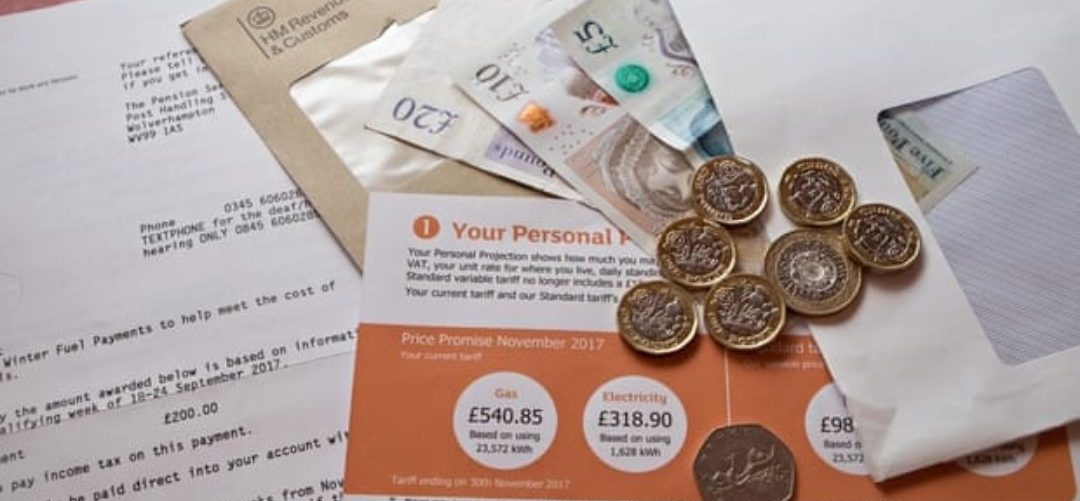Pressure is mounting on the leaders of Britain’s two major political parties to embrace greater wealth taxes, as concerns rise about the impact of a fresh austerity push amid the cost-of-living crisis.
A new coalition of 40 charities and campaign groups, including Oxfam, Save the Children, and Christians Against Poverty, said Britain’s tax system was broken and those who paid the most should “pay their proper share” in an intervention as the new prime minister, Rishi Sunak, considers options for filling a £35bn black hole in the public finances.
The Stop the Squeeze campaign warned that severe cutbacks to public expenditure would only exacerbate poverty, as mounting gas and electricity bills, as well as the growing cost of a weekly purchase, leaving people facing the largest drop in living standards in 60 years.
According to opinion polling of 2,000 people on behalf of the campaign, a majority of Conservative voters in 2019, many of whom live in “red wall” seats, would favor affluent persons paying more tax than they do currently.
When asked if they thought Britain’s present economic position made expenditure cutbacks unavoidable, as few as 21% of Tory supporters in the previous election agreed, with almost half believing such cuts would worsen the situation.
“We want politicians to Stop the Squeeze by implementing measures that address both the present crisis and the underlying flaws with our economy that have brought us to this point,” the campaign group stated in a statement.
According to the organization, which includes the Economic Change Unit, the New Economics Foundation, and Tax Justice UK, revenues at certain huge firms were skyrocketing, while the number of UK billionaires had increased dramatically.
As the chancellor, Jeremy Hunt works to rebuild the public finances after the harm inflicted by the Liz Truss mini-budget, the government is under pressure to avoid devastating expenditure cutbacks. According to the financial news service Bloomberg, the chancellor has prepared a menu of 104 alternatives for cutting public spending to get the public finances back on track.
However, some economists feel that additional options exist. According to Tax Justice UK analysis, a series of wealth taxes may earn up to £37 billion to help pay for public services and energy costs.
However, other economists argue that additional options are available. According to Tax Justice UK analysis, a series of wealth taxes may earn up to £37 billion to assist pay for public services and support energy costs.
A separate analysis by the Institute for Public Policy Research and the Common Wealth think tank discovered that a windfall tax on share buybacks – a sort of investment dividend employed by publicly traded corporations – could earn £4.8 billion each year.
If the government follows Joe Biden’s lead and imposes a 1% tax on share buybacks, it may collect around £225 million. While dividends are a well-known technique for returning business earnings to shareholders, buybacks operate by firms repurchasing their shares to boost their value. The strategy helps not just investors, but also firm executives whose pay is based on a growing share price.
Keir Starmer has lately dismissed ideas that Labour implements a “wealth tax,” while he has stated that the party is looking into ways to make the tax system more equitable. So far, the only policy it has published is a pledge to close the non-dom loophole, which allows affluent UK citizens to avoid paying tax on their international income and capital gains.
“I don’t need to explain to the prime minister how non-dom status works – he already knows all about it,” Starmer said during prime minister’s questions on Wednesday.
Sunak’s wife claimed the status earlier this year. The prime minister said he would have to make “tough decisions” to restore economic stability, and that additional information will be provided in the fall statement, which has been pushed back to November 17th.
However, campaign organizations are urging legislators to enact stronger policies on wealth taxes as the cost of living issue impacts the lowest members of society the hardest.
“The new PM’s intentions to reduce public expenditure to pay for tax cuts are not some fresh experiment – it has been the primary political goal for a decade,” said Alfie Stirring, director of research and principal economist at the New Economics Foundation.
“We know how it ends: stagnant salaries, frail income safety nets, chilly and draughty dwellings, and frail public services.”
“The country is yearning for a change.” People desire energy stability, a robust NHS, good schools, and a fair salary to afford life’s necessities. It starts with our new Prime Minister making a straightforward choice: demanding the very affluent contribute their fair amount.”

